
93 Results


Examines theory and research on the relationship of organizations to each other and to their economic, political, and social environments. Classic and contemporary approaches to complex social systems, the dynamics of inertia and change, the role of legitimacy, and the production of change as an intended or unintended consequence. Considers the relative roles of voluntarism and determinism in the pursuit of organizational agendas and in the shaping of organizational environments, for example, with respect to changing employment relationships and environmentalism. Primarily for doctoral students. The goal of this doctoral course is to familiarize students with major conceptual frameworks, debates, and developments in contemporary organization theory. This is an inter-disciplinary domain of inquiry drawing primarily from sociology, and secondarily from economics, psychology, anthropology, and political science. The course focuses on inter-organizational processes, and also addresses the economic, institutional and cultural contexts that organizations must face. This is an introduction to a vast and multifaceted domain of inquiry. Due to time limitations, this course will touch lightly on many important topics, and neglect others entirely; its design resembles more a map than an encyclopedia. Also, given the focus on theoretical matters, methodological issues will move to the background. Empirical material will be used to illustrate how knowledge is produced from a particular standpoint and trying to answer particular questions, leaving the bulk of the discussion on quantitative and qualitative procedures to seminars such as 15.347, 15.348, and the like.
- Subject:
- Anthropology
- Business and Communication
- Economics
- Political Science
- Psychology
- Social Science
- Sociology
- Material Type:
- Full Course
- Provider:
- M.I.T.
- Provider Set:
- M.I.T. OpenCourseWare
- Author:
- Boczkowski, Pablo
- Date Added:
- 01/01/2004
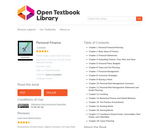
This is a comprehensive Personal Finance text which includes a wide range of pedagogical aids to keep students engaged and instructors on track. This book is arranged by learning objectives. The headings, summaries, reviews, and problems all link together via the learning objectives. This helps instructors to teach what they want, and to assign the problems that correspond to the learning objectives covered in class.Personal Finance includes personal finance planning problems with links to solutions, and personal application exercises, with links to their associated worksheet(s) or spreadsheet(s). In addition, the text boasts a large number of links to videos, podcasts, experts’ tips or blogs, and magazine articles to illustrate the practical applications for concepts covered in the text.
- Subject:
- Business and Communication
- Finance
- Material Type:
- Textbook
- Provider:
- University of Minnesota
- Provider Set:
- Open Textbook Library
- Author:
- Carol Yacht
- Rachel Siegel
- Date Added:
- 01/01/2009

This is a comprehensive Personal Finance text which includes a wide range of pedagogical aids to keep students engaged and instructors on track. This book is arranged by learning objectives. The headings, summaries, reviews, and problems all link together via the learning objectives. This helps instructors to teach what they want, and to assign the problems that correspond to the learning objectives covered in class.Personal Finance includes personal finance planning problems with links to solutions, and personal application exercises, with links to their associated worksheet(s) or spreadsheet(s). In addition, the text boasts a large number of links to videos, podcasts, experts’ tips or blogs, and magazine articles to illustrate the practical applications for concepts covered in the text.
- Subject:
- Business and Communication
- Finance
- Material Type:
- Textbook
- Provider:
- The Saylor Foundation
- Provider Set:
- Saylor Textbooks
- Author:
- Carol Yacht
- Rachel Siegel
- Date Added:
- 01/01/2009
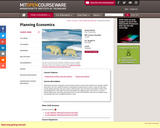
Planning Economics will apply microeconomic theory to issues that markets don't always handle well and so are not usually covered in a standard microeconomics course. Issues for this year include global warming, how you value a national park, the economics and politics of New York City development, how cities form and why people are willing to pay more to live in, say, the Boston Metro area, than they would pay to live in rural North Dakota, and how to evaluate costs and benefits that occur at different points in time.
- Subject:
- Business and Communication
- Economics
- Social Science
- Material Type:
- Full Course
- Provider:
- M.I.T.
- Provider Set:
- M.I.T. OpenCourseWare
- Author:
- Levy, Frank
- Date Added:
- 01/01/2009

Intensive coverage of precision engineering theory, heuristics, and applications pertaining to the design of systems ranging from consumer products to machine tools. Topics covered include: economics, project management, and design philosophy; principles of accuracy, repeatability, and resolution; error budgeting; sensors; sensor mounting; systems design; bearings; actuators and transmissions; system integration driven by functional requirements and operating physics. Emphasis on developing creative designs which are optimized by analytical techniques applied via spreadsheets. Many real-world examples are given, and classwork and tests are based on mini-design problems. From the course home page: This is a projects course with lectures consisting of design teams presenting their work and the class helping to develop solutions; thereby everyone learning from everyone's projects.
- Subject:
- Arts and Humanities
- Economics
- Philosophy
- Social Science
- Material Type:
- Full Course
- Provider:
- M.I.T.
- Provider Set:
- M.I.T. OpenCourseWare
- Author:
- Slocum, Alexander H.
- Date Added:
- 01/01/2001
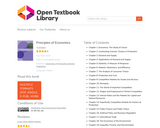
Flat World Knowledge is thrilled to publish a first edition re-launch of Tim Tregarthen’s acclaimed Principles of Economics book, and proud to bring Tim's remarkable talents as a teacher to future generations of students.In 1996, Tim published the first edition of his principles of economics textbook to great acclaim, and it became widely used in colleges around the country. That same year, MS made him wheelchair-bound. The disease forced his retirement from teaching at the University of Colorado at Colorado Springs in 1998. He lost the use of his arms in 2001 and has been quadriplegic ever since.Tim never let his disease get him down. In fact, he turned back to his love of writing and teaching for inspiration. He obtained a voice-activated computer, recruited a co-author, Libby Rittenberg of Colorado College, and turned his attention to revising his principles of economics book.Today we are excited to introduce Libby Rittenberg and Timothy Tregarthen’s Principles of Economics. The authors teach economics as the study of “choice “ by providing students with an accessible, straightforward overview of economics. This text combines the clarity and writing of Tregarthen's seminal periodical "The Margin" with great teaching insights.Rittenberg and Tregarthen help students to understand how real individuals actually work with economics. In this new book, the authors illustrate the practicality and relevance of economics with a variety of new illustrations and insights.The authors take a three-pronged approach to every concept: (1) the concept is covered with a “Heads Up” to ward off confusion, (2) a “You Try It” section makes sure students are staying on top of the concept and (3) a “Case and Point” section that uses a real-world application to harness the concept in reality. For one example of how this plays out in the text see "Chapter 3, Section 2 on Supply." hereThis book is intended for a two-semester course in economics taught out of the social sciences or business school.
- Subject:
- Economics
- Social Science
- Material Type:
- Textbook
- Provider:
- University of Minnesota
- Provider Set:
- Open Textbook Library
- Author:
- Libby Rittenberg and Timothy Tregarthen
- Date Added:
- 01/01/2011
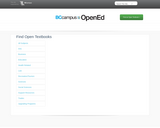
Published by OpenStax College, Principles of Economics covers the scope and sequence for a two-semester principles of economics course. The text also includes many current examples, including; discussions on the great recession, the controversy among economists over the Affordable Care Act (Obamacare), the recent government shutdown, and the appointment of the United States first female Federal Reserve chair, Janet Yellen. The pedagogical choices, chapter arrangements, and learning objective fulfillment were developed and vetted with feedback from educators dedicated to the project. The outcome is a balanced approach to micro and macro economics, to both Keynesian and classical views, and to the theory and application of economics concepts. Current events are treated in a politically-balanced way, as well.
- Subject:
- Economics
- Social Science
- Material Type:
- Textbook
- Provider:
- BCcampus
- Provider Set:
- BCcampus Faculty Reviewed Open Textbooks
- Author:
- Steven Greenlaw
- Timothy Taylor
- Date Added:
- 09/09/2014

Principles of Economics covers scope and sequence requirements for a two-semester introductory economics course. The authors take a balanced approach to micro- and macroeconomics, to both Keynesian and classical views, and to the theory and application of economics concepts. The text also includes many current examples, which are handled in a politically equitable way.
- Subject:
- Economics
- Social Science
- Material Type:
- Textbook
- Provider:
- Rice University
- Provider Set:
- OpenStax College
- Author:
- Amyaz Moledina
- Andres Jauregui
- Craig Richardson
- Cynthia Gamez
- Dan MacDonald
- David Shapiro
- Diane Keenan
- Eric Dodge
- Ralph Sonenshine
- Steven Greenlaw
- Timothy Taylor
- Date Added:
- 01/02/2014

This work includes a teaching material that could be the embryonic stage of a textbook for a Principles of Financial Management course.
Principles of Financial Management is a course that introduces you to key financial concepts and the application of financial analysis in making sound business decisions. Topics covered are time value of money, risk and rates of return, asset valuation, capital budgeting, and capital structure, and more. At the end of the course, you will gain an understanding of financial assets, financial markets, financial intermediaries, and the banking system. You will also be able to understand financial statements (i.e., balance sheet, income statement, and cash flow statement) published by corporations and the various ratios utilized by investors.
- Subject:
- Business and Communication
- Economics
- Education
- Social Science
- Material Type:
- Textbook
- Provider:
- CUNY Academic Works
- Provider Set:
- Kingsborough Community College
- Author:
- Tila, Dorina
- Date Added:
- 06/20/2023
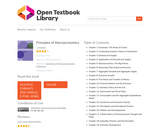
Recognizing that a course in economics may seem daunting to some students, we have tried to make the writing clear and engaging. Clarity comes in part from the intuitive presentation style, but we have also integrated a number of pedagogical features that we believe make learning economic concepts and principles easier and more fun. These features are very student-focused. The chapters themselves are written using a “modular” format. In particular, chapters generally consist of three main content sections that break down a particular topic into manageable parts. Each content section contains not only an exposition of the material at hand but also learning objectives, summaries, examples, and problems. Each chapter is introduced with a story to motivate the material and each chapter ends with a wrap-up and additional problems. Our goal is to encourage active learning by including many examples and many problems of different types.
- Subject:
- Economics
- Social Science
- Material Type:
- Textbook
- Provider:
- University of Minnesota
- Provider Set:
- Open Textbook Library
- Author:
- Libby Rittenberg
- TimothyTregarthen
- Date Added:
- 01/01/2011
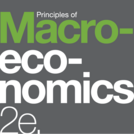
Principles of Macroeconomics 2e covers the scope and sequence of most introductory economics courses. The text includes many current examples, which are handled in a politically equitable way. The outcome is a balanced approach to the theory and application of economics concepts. The second edition has been thoroughly revised to increase clarity, update data and current event impacts, and incorporate the feedback from many reviewers and adopters. Changes made in Principles of Macroeconomics 2e are described in the preface and the transition guide to help instructors transition to the second edition. The first edition of Principles of Macroeconomics by OpenStax is available in web view here.
- Subject:
- Economics
- Material Type:
- Full Course
- Provider:
- Rice University
- Provider Set:
- OpenStax College
- Date Added:
- 06/29/2017

- Subject:
- Economics
- Material Type:
- Unit of Study
- Provider:
- Rice University
- Provider Set:
- OpenStax College

By the end of this section, you will be able to:
Discuss the importance of studying economics
Explain the relationship between production and division of labor
Evaluate the significance of scarcity
- Subject:
- Applied Science
- Material Type:
- Module
- Date Added:
- 09/20/2018
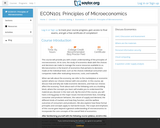
The purpose of this course is to provide the student with a basic understanding of the principles of microeconomics. At its core, the study of economics deals with the choices and decisions that have to be made in order to manage scarce resources available to us. Microeconomics is the branch of economics that pertains to decisions made at the individual level, i.e. by individual consumers or individual firms, after evaluating resources, costs, and tradeoffs. "The economy" refers to the marketplace or system in which these choices interact with one another. In this course, the student will learn how and why these decisions are made and how they affect one another in the economy. Upon successful completion of this course, students will be able to: Think intuitively about economic problems; Identify how individual economic agents make rational choices given scarce resources and will know how to optimize the use of resources at hand; Understand some simplistic economic models related to Production, Trade, and the Circular Flow of Resources; Analyze and apply the mechanics of Demand and Supply for Individuals, Firms, and the Market; Apply the concept of Marginal Analysis in order to make optimal choices and identify whether the choices are 'efficient' or 'equitable'; Apply the concept of Elasticity as a measure of responsiveness to various variables; Identify the characteristic differences amongst various market structures, namely, Perfectly Competitive Markets, Non-Competitive Markets, and Imperfectly Competitive Markets and understand the differences in their operation; Analyze how the Demand and Supply technique works for the Resource Markets. (Economics 101; See also: Business Administration 200)
- Subject:
- Business and Communication
- Economics
- Management
- Social Science
- Material Type:
- Assessment
- Full Course
- Lecture
- Lecture Notes
- Reading
- Syllabus
- Textbook
- Provider:
- The Saylor Foundation
- Date Added:
- 03/06/2019

This is an open-access platform for anyone who wants to understand the principles of microeconomics. This platform is suitable both for economics and non-economics majors. It gives an overview of economics as a social science for those wishing to learn the basics of economics and of problem solving methods and tools in economics to be able to think on and perform critical and innovative tasks in their area of expertise or discipline at all. It also provides a solid grounding in the theoretical and analytic principles used in microeconomic theory while offering a fresh understanding the economic complexities of the twenty-first century for those wishing to pursue further education in Economics.
- Subject:
- Economics
- Social Science
- Material Type:
- Full Course
- Provider:
- CUNY
- Provider Set:
- New York City College of Technology
- Author:
- Ilker Aslantepe
- Date Added:
- 12/10/2018

Principles of Microeconomics is an introductory undergraduate course that teaches the fundamentals of microeconomics. This course introduces microeconomic concepts and analysis, supply and demand analysis, theories of the firm and individual behavior, competition and monopoly, and welfare economics. Students will also be introduced to the use of microeconomic applications to address problems in current economic policy throughout the semester.
- Subject:
- Economics
- Social Science
- Material Type:
- Full Course
- Provider:
- M.I.T.
- Provider Set:
- M.I.T. OpenCourseWare
- Author:
- Jonathan Gruber
- Date Added:
- 01/01/2011

Recognizing that a course in economics may seem daunting to some students, we have tried to make the writing clear and engaging. Clarity comes in part from the intuitive presentation style, but we have also integrated a number of pedagogical features that we believe make learning economic concepts and principles easier and more fun. These features are very student-focused. The chapters themselves are written using a modular format. In particular, chapters generally consist of three main content sections that break down a particular topic into manageable parts. Each content section contains not only an exposition of the material at hand but also learning objectives, summaries, examples, and problems. Each chapter is introduced with a story to motivate the material and each chapter ends with a wrap-up and additional problems. Our goal is to encourage active learning by including many examples and many problems of different types.
- Subject:
- Economics
- Social Science
- Material Type:
- Textbook
- Provider:
- BCcampus
- Provider Set:
- BCcampus Faculty Reviewed Open Textbooks
- Author:
- Libby Rittenberg
- Tim Tregarthen
- Date Added:
- 01/05/2015

Principles of Economics covers scope and sequence requirements for a two-semester introductory economics course. The authors take a balanced approach to micro- and macroeconomics, to both Keynesian and classical views, and to the theory and application of economics concepts. The text also includes many current examples, which are handled in a politically equitable way.
- Subject:
- Economics
- Social Science
- Material Type:
- Textbook
- Provider:
- OpenOregon
- Provider Set:
- OpenOregon Textbooks
- Author:
- Benjamin Wilson
- Erik Dean
- Justin Elardo
- Mitch Green
- Sebastian Berger
- Date Added:
- 10/22/2018
